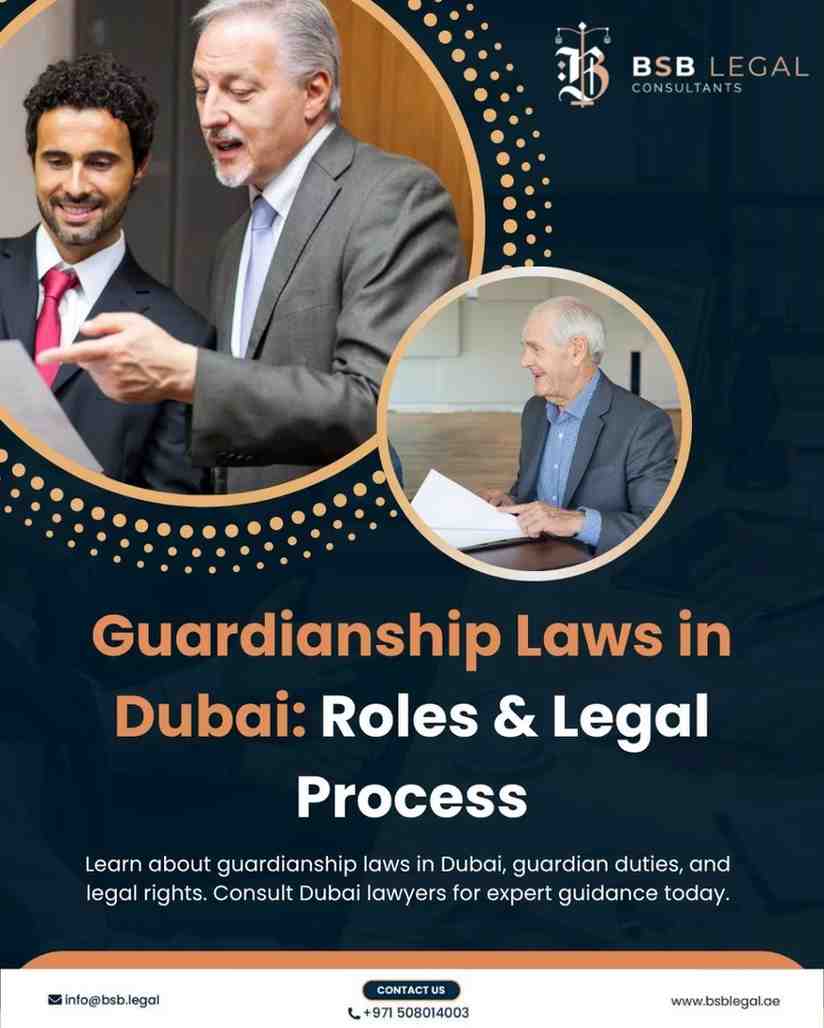
Guardianship—it’s a word that carries immense responsibility, especially in a legal context. In Dubai, guardianship laws are designed to protect those who can’t defend themselves, whether they’re minors or adults who are incapable of managing their affairs due to mental incapacity. But what exactly do guardianship laws in Dubai entail? What responsibilities does a guardian hold, and under what circumstances can this role be revoked or reassigned?
The Basics of Guardianship in Dubai
Under guardianship laws in Dubai, guardianship is divided into two categories: Guardianship of the Person and Guardianship of Property.
- Guardianship of the Person: This involves caring for all aspects of a minor’s life. The guardian supervises, protects, educates, and makes decisions regarding the minor’s upbringing. This can also extend to marriage approval when the minor reaches a suitable age.
- Guardianship of Property: This focuses on the minor’s assets. The guardian manages and protects the minor’s property, ensuring it is preserved and, where possible, invested wisely. This also covers legal representation concerning the minor’s property.
These roles are crucial in ensuring that minors, who are not legally capable of managing their own affairs, are well cared for and that their assets are protected until they reach the age of majority.
Who Can Be a Guardian?
Not everyone can assume the role of a guardian in Dubai. The law stipulates specific conditions that must be met:
- Age and Mental Capacity: The guardian must be of legal age and sound mind. This ensures that the individual is mature and capable of making informed decisions on behalf of the minor.
- Honesty and Capability: The guardian must be trustworthy and capable of handling guardianship responsibilities. For the guardianship of a person, the guardian must also share the same religion as the minor.
- Family Ties: Typically, the father is granted guardianship first, followed by the closest agnate male relative, according to the order of inheritance. If several individuals are equally eligible, the oldest among them is usually preferred unless there’s a reason to choose another. Such as better suitability as determined by the court.
If no suitable guardian is found within the family, the court can appoint a guardian from outside the family, prioritizing the minor’s best interests.
Conditions for Stripping Guardianship
Guardianship is a serious responsibility, and not everyone can maintain it indefinitely. Dubai law outlines specific conditions under which a guardian can be stripped of their role:
- Breaching Guardian Conditions: If a guardian fails to meet the conditions set out for guardianship—such as honesty, capability, or mental soundness—their guardianship can be revoked.
- Criminal Activity: If the guardian is involved in criminal activities, particularly those against the minor or those of a sexual or violent nature, the guardianship can be stripped. This includes any situation where the guardian is sentenced to a custodial punishment exceeding one year.
- Endangerment of the Minor: If the guardian’s actions or lifestyle endanger the minor’s safety, health, or moral well-being, the court can strip guardianship. This includes cases where the guardian’s behavior, such as addiction or a notorious reputation, poses a risk to the minor.
The Legal Process of Stripping and Transferring Guardianship
In cases where guardianship needs to be revoked or reassigned, the court plays a central role:
- Temporary Measures: The court may temporarily entrust the minor to a trustworthy individual or a specialized social institution while determining the outcome of a guardianship case.
- Permanent Revocation: If a guardian is permanently stripped of their role, the guardianship is passed on to the following eligible individual, as determined by the court. If no family member is deemed suitable, the court may appoint an unrelated person or a specialized institution to take over the guardianship.
- Restoration of Guardianship: In some cases, the court may restore guardianship to an individual previously stripped of the role. Provided that the circumstances that led to the revocation have changed, and the guardian can now fulfill their duties appropriately.
Conclusion
Guardianship laws in Dubai ensure the protection of minors and those unable to manage their affairs. Understanding these laws helps safeguard rights and responsibilities. For further guidance on Dubai’s estate division laws, consulting with experienced legal professionals or Dubai Lawyers is always a good idea. Reaching out to Dubai lawyers can provide you with personalized advice.







